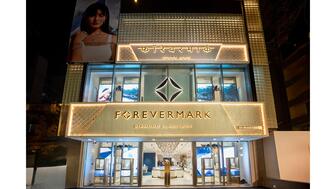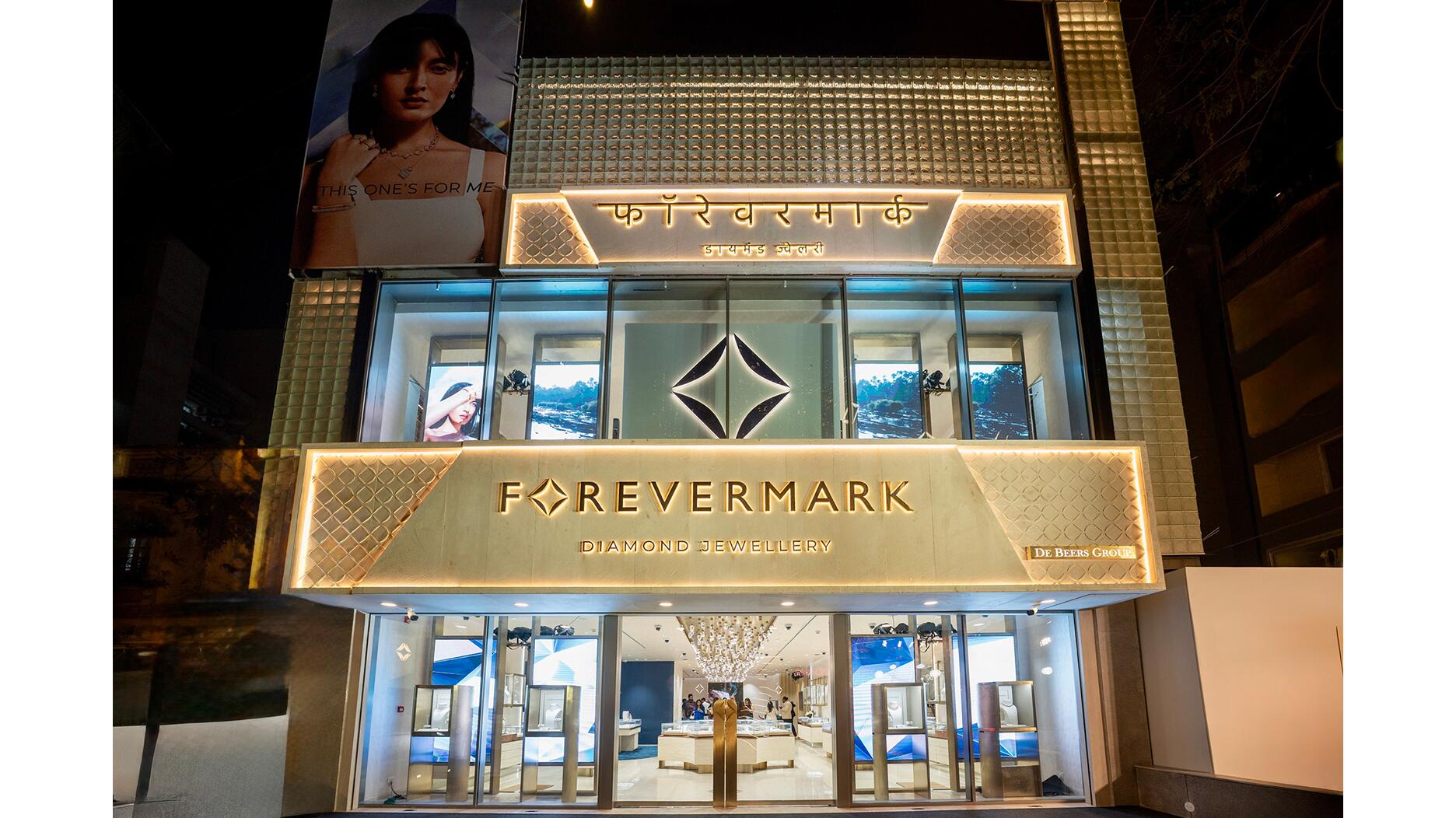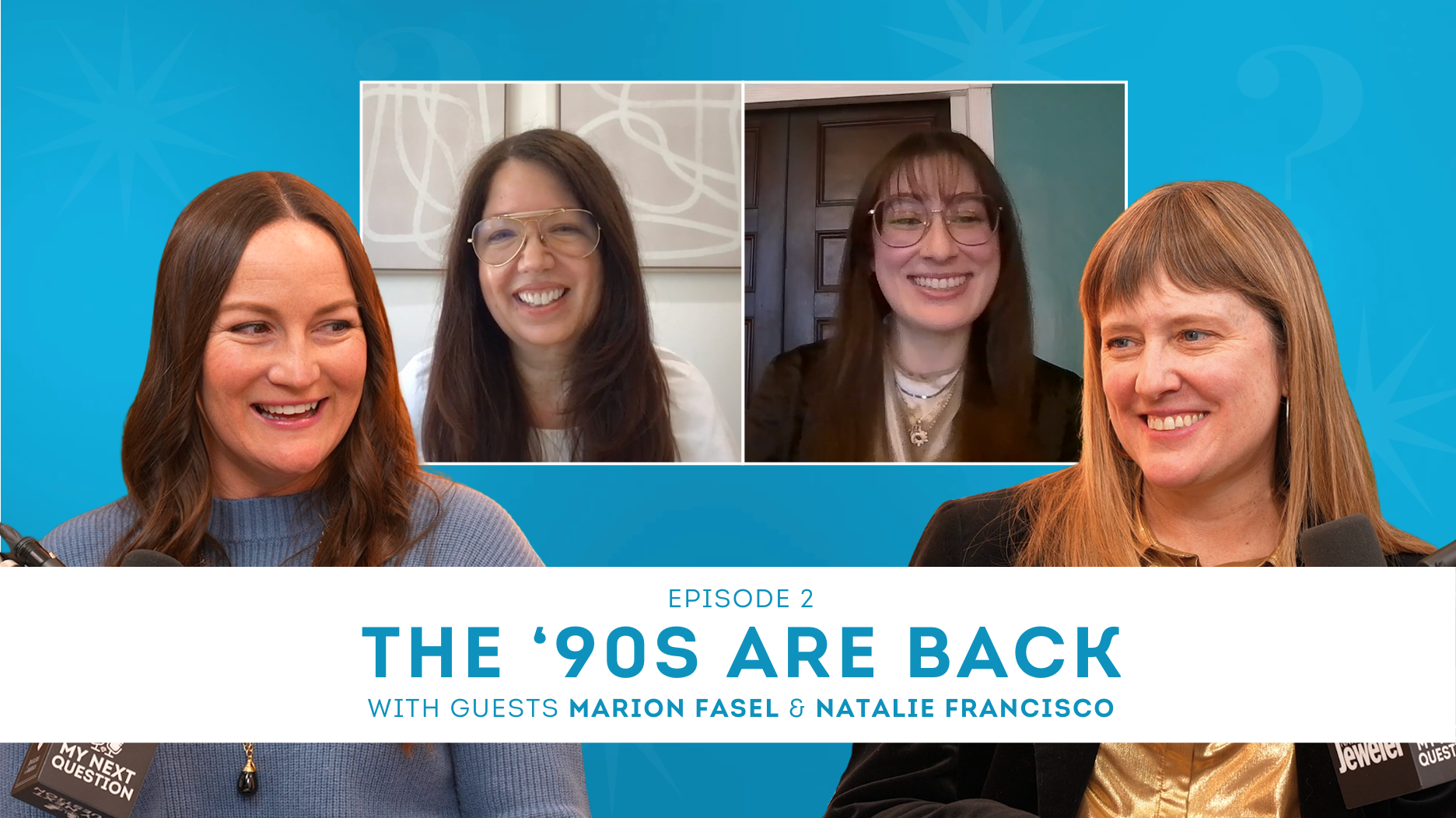Colored Stone Market Update: Tracking Industry Trends in Tucson
Declining supply and growing demand persist in the colored gemstone market, presenters from Gemworld said at AGTA GemFair Tucson.

On Feb. 6, Stuart Robertson, president of Gemworld International Inc., and Brecken Branstrator, editor-in-chief of the company’s publication, GemGuide, kicked off the day with a presentation on colored stone prices and market trends.
Robertson began with a recap of 2024 from a retail perspective, noting record-high holiday sales and highlighting the fact that jewelry outperformed apparel, a reversal from the prior year.
The first two months of 2024 and the holiday period, meaning from Black Friday through the end of the year, accounted for the growth, he said, as sales were otherwise slow and “very stagnant.”
Independent jewelers performed particularly well.
“This, of course, makes sense because independents tend know their customers; they tend to sell what the customer wants,” he said.
Sales via online and social media markets saw a nearly 10 percent increase from 2023, he added, while there also was strength at the high end of the market.
However, mid-tier large corporate chain stores, where Robertson said the buyer often knows nothing about the particular community the product is being sold to, did not do so well.
When these businesses increase spending on creating marketing campaigns to convince consumers to buy certain things, “It doesn’t always work well,” Robertson said.
Simple gold pieces and colored gemstones were the top-selling categories throughout the year.
For years, GemGuide has recognized colored stones as an entire category, usually accounting for somewhere between 9 and 11 percent of the industry, but Robertson said that’s not the case anymore.
“We’re seeing color increasing its market share,” he said. “It’s become a major profit center.”
He expects the Gemstone Trading Network, a new colored gemstone-dedicated platform from RapNet and AGTA, to be significant in expanding market access for colored stones.
Robertson also expects a learning curve for those expanding into the category, particularly for those who previously worked only with diamonds, as the value determinants of color extend beyond the four Cs.
Also, he noted, colored stones aren’t like gold or diamonds, which tend to be accessible to buyers whenever they want.
Demand Is Rising, Supply Is Not
Although color is expected to remain one of the strongest categories in this industry this year, Robertson said production is still limited and has been for a few years.
To his knowledge, no major new sources have come online.
“At this point, we don’t see any scenario with prices where the fine end of color will come down. The reality is that scarcity is supporting the market, [and] demand at the upper end for the finer quality is stronger,” he said.
“[Unless there is] a major economic downturn, we don’t see that happening.”
Robertson repeated his advice from 2024—buyers who see desirable gemstones should act quickly, as the opportunity to see a comparable material is unlikely.
He added, “And if you do come across a comparable material in a relatively short period of time, you can be assured it’s going to be more expensive.”
Dealers have become increasingly aware of this fact. If they sell something, they know they need to replace it, or restock it, in the current marketplace.
While it’s still somewhat possible to find old stock that is priced a little bit more advantageously for the buyer, it’s not common, Robertson said.
The market price is what is it is.
Greens, Oranges and Blues Are On-Trend
Branstrator, the editor-in-chief of GemGuide, continued the presentation with trend predictions.
She said she expects green tourmaline, with its availability and affordability, will continue its growth as a popular stone, and interest in orange gemstones may be on the rise as well.
“There are more designers getting into some orange material, and fancy sapphires and garnets have been sort of popular stones of late, so I think this could be the year for orange as well,” she said.
Designers also are expected to continue experimenting with unique color combinations and interesting gemstone cuts, particularly “one-off” or fantasy cuts from independent cutters.
In terms of pricing, Branstrator said that while high-end material prices aren’t likely to decline, the commercial to lower end may soften.
“We were hearing at the end of last year that the Hong Kong shows were rather quiet with not a lot of Chinese buyers, so I think if you take away that demand with a very high availability, I think this year we’re going to see that area soften a bit.”
She echoed Robertson, predicting that buyers, driven by color’s low supply and high demand, will continue exploring new categories of material. She said she’s noticed buyers are more open to purchasing goods that may have been overlooked at one time, such as “hazy” sapphires.
“They’ve got a lot of silk, and they have this cloudy look to them, and they’re marketing them as opalescent,” she said of the gemstones.
Designers also have been working with a green variety of Cuprian tourmaline.
Cuprian is a term used to refer to copper-bearing tourmalines; the most well-known variety is the “Windex blue” tourmaline found in the Paraíba state of Brazil.
“We know that traditional Paraíba prices are sky high, and supply is not there, so [designers are] finding their way into the green material that still offers the same great neon look, but it’s more affordable,” Branstrator said.
Green sapphires also remain a popular choice, as well as parti sapphires and sapphires with a “denim” blue hue like the Montana material.
Rare Continues Its Rise
Rare and unusual stones have been strong for the past five or so years. They were strong sellers in Tucson, said Robertson, and the appetite for gem-quality material is still there.
One vendor he spoke to brought approximately 150 Benitoites, a barium titanium silicate that is typically colorless to blue and commercially mined only in San Benito County, California, to Tucson. He sold 80 percent of his stock on the first day.
Alexandrite has risen in popularity as well, with Tucson show surveys showing an “unexpectedly” high increase in number of requests for the color-changing stone.
Robertson said multiple colors of garnet and tourmaline also are in demand.
The palette of color available in garnet is large and while supply does fluctuate, there is typically availability in key colors, and Robertson noted there is some recent production of rhodolite (rose pink to red) garnet in Tanzania.
“Several dealers expressed to us that it’s a beautiful material, but it seems to be kind of testing the ceiling for price in the category, based on what rhodolite is historically sold for,” he said.
The biggest price increases have been for gemstones of fine and extra-fine quality.
“[These gemstones] benefit from classic name recognition, of course, as well as the high price of other stones in the same color range,” said Robertson.
As ruby and spinel prices rise, stones with similar color options, such as garnet, also see increased demand and, as a result, higher prices.
Paraíba tourmaline, as well as indicolite and the teal colors, are all good sellers, along with red and pink.
Green tourmaline, as previously mentioned, is benefiting from the current popularity of green gemstones in general.
A dip in price was observed for some Paraíba-type (Mozambican and Cuprian) material, but mostly in lower and middle grades.
“As one dealer explained, the amount of that particular range of material that was shown last year in Vegas, and then again in Hong Kong, was so high that it undermined the perception that the material was rare, so that’s what hurt it,” Robertson said.
The price for high-end qualities of this gemstone have stabilized and in some cases, increased slightly. Prices for true Paraíba have been holding strong, high even in a 1-carat size.
Robertson observed wholesale asking prices of more than $70,000 per carat for the “Windex blue” Paraíba material.
“Who knows what the actual negotiated price would be, but the numbers have gotten very high in that category,” he said.
For sapphire, a strong seller in the global trade, the focus is mostly on single stone sizes now, similar to ruby and emerald.
Some manufacturers report that the cost of producing melee has risen sharply with increased cutting costs, and it’s tempered demand for smaller sizes.
For true Padparadscha sapphire, prices are firm, and availability is low for sizes above a carat.
“One of the dealers we spoke to at the beginning of the week noted that Padparadscha is the stone that everybody wants until they hear the price,” Robertson said.
He cautioned against shopping just for the name, noting there’s “a lot of stuff getting called [Padparadscha] that doesn’t come remotely close to the classic definition.”
Dealers also indicate the appetite for spinel has become “unstoppable.” Spinel is a popular gemstone with “not a big supply” and prices reflect the increased demand.
Peridot continues to be popular and prices for fine and extra-fine peridot material have increased.
Buyers also have been showing interest in zircon for the last year or two, but the stone is not immune to the price increases experienced by other gemstones.
Blues have always been strong, but other colors also have attracted attention, increasing activity in the marketplace.
Zircon is popular among independent jewelers, particularly the small kind of gallery-based designers known to advertise on social media, said Robertson.
“It has moved up and pretty dramatically relative to where it where it historically been,” he said.
As for Montana sapphires, a star at last year’s show, demand was strong again this year, but the interest now is strongest in local markets.
American-mined gems have had an active past few years, with Montana and San Diego County tourmaline making headlines. However, dealers report that the market has reverted back to being locally driven.
The supply of the material is too limited to support a broader market, with the exception of Arizona peridot, Robertson said.
“That [peridot] is produced and marketed in quantities sufficiently enough, and it sells by its origin in the global marketplace.”
Sourcing Updates
The presenters also touched on various sourcing issues reported by well-known mining operations in the last year.
Branstrator recapped the invasion that took place near Gemfields’ mine in Mozambique in late December, and she also mentioned disruptions at mining sites in Ethiopia, which remains roiled by internal conflicts.
“Even as late as late last year, I was hearing from some of the miners and the dealers that mining [in Ethiopia] was very interrupted. Some of the miners couldn’t get to their sites, and trade activity was very stunted. There wasn’t much moving out of there,” she said.
The government of Kenya, she continued, announced a strategic plan that involved the country’s minerals and tsavorite was included in that, but the guidelines aren’t clear.
“It’s unclear what exactly that means. One of our East African correspondents said that they thought it would be something like the government having a 10 percent stake in mining claims, but even to them, it's still very unclear,” she said.
“He said they’re very frustrated because they can’t export much tsavorite right now.”
Branstrator also gave on update on one of Gemworld’s research projects from the past year, which looked into fracture filling in gemstones and the market makeup, adding that more information on the findings will be available in the next issue of GemGuide.
In his closing remarks, Robertson noted they were continuing to watch the high cost of gold and how it’s encouraging more use of alternative metals and materials in jewelry.
He also mentioned the buzz surrounding the Trump administration’s new tariffs, adding, “We don’t know really to what extent any of this is going to affect the industry at this point.”
The Latest

Beverly Hills was chosen as the location for the brand’s first store, designed as a “private residence for modern monarchs.”

Kering, Apple, and other retailers have reportedly temporarily closed stores in the Middle East region in light of the recent conflicts.

Beth Gerstein discusses the vibe of the new store, what customers want when fine jewelry shopping today, and the details of “Date Night.”

Every jeweler faces the same challenge: helping customers protect what they love. Here’s the solution designed for today’s jewelry business.
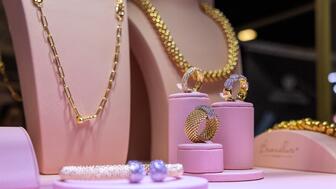
Nearly half of buyers are prioritizing silver and fashion collections this season, organizers said.


The “Live Now. Polish Later.” campaign features equestrians wearing the brand’s jewels while galloping across the icy plains of Kazakhstan.

The precious metals provider has promoted Jennifer Ashworth to the role.

With refreshed branding, a new website, updated courses, and a pathway for growth, DCA is dedicated to supporting retail staff development.
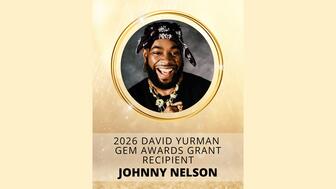
Nelson will be honored as the inaugural grant winner at the Gem Awards gala on March 13.

The American precious metals refiner’s day-to-day operations remain the same post-acquisition.
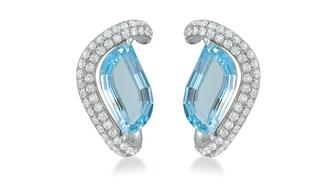
These aquamarine jewels channel the calming energy of the March birthstone.
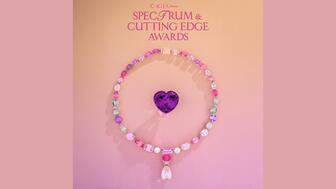
The “Innovative Design” category and award will debut in the Spectrum division of this year’s AGTA Spectrum & Cutting Edge Awards.

Diamond jewelry was the star of the event formerly known as the SAG Awards.

Consumers were somewhat less worried about the future, though concerns about rising prices and politics remained.

Foerster is this year’s Stanley Schechter Award recipient.

Sponsorships and tickets to the annual fundraising event, set for May 31, are available now.

Chicago police and members of the U.S. Marshals Service tracked down the 35-year-old suspect earlier this week in St. Louis.

A 10-year alliance has also begun to address the shortage of bench jewelers through scholarships, enhanced programs, and updated equipment.
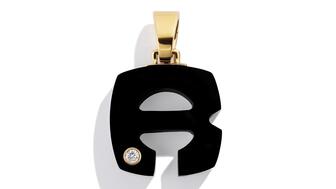
The “Splendente” collection has evolved to feature hardstone letter pendants, including our Piece of the Week, the onyx “R.”
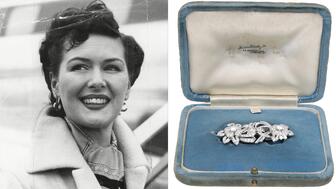
The jewelry collection belonged to “one of society's most glamorous and beautiful women of the mid-20th century,” said the auction house.
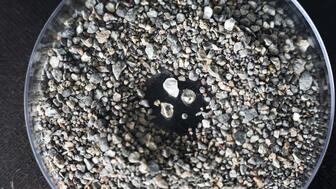
The update came as Anglo took its third write-down on the diamond miner and marketer, which lost more than $500 million in 2025.

Emmanuel Raheb discusses the rise of “GEO” and the importance of having well-written, quality content on your website.

Each received around four years for burglarizing a jewelry store and a coffee shop in Simi Valley, California, last May.
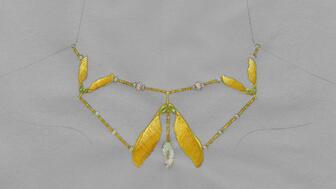
Catherine Aulick, a GIA graduate, received the ninth and final Gianmaria Buccellati Foundation Award for Excellence in Jewelry Design.
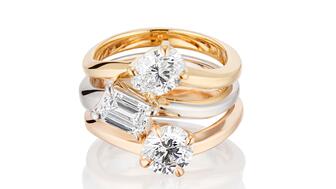
We asked a jewelry historian, designer, bridal director, and wedding expert what’s trending in engagement rings. Here’s what they said.

Are arm bands poised to make a comeback? Has red-carpet jewelry become boring? Find out on the second episode of the “My Next Question” podcast.
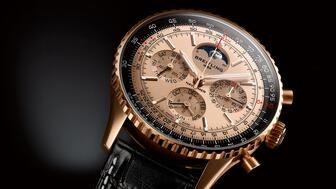
The Swiss watchmaker is battling declining sales amid a rapid retail expansion, according to a Financial Times report.


